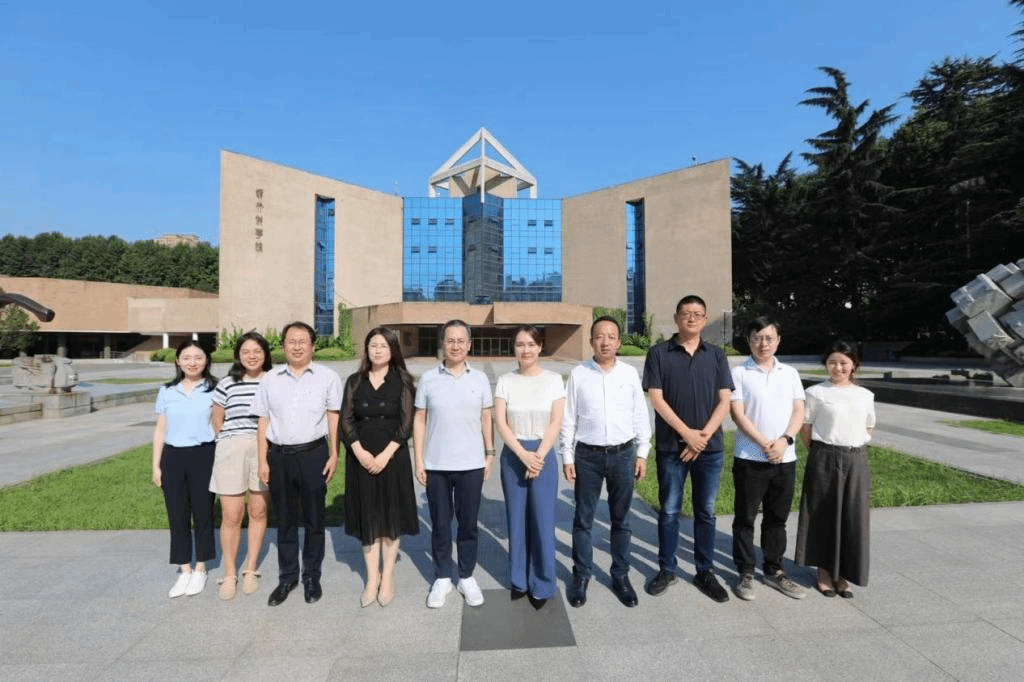Department/Institute director: MA Xiaoyue, Email: [email protected]
Party branch secretary: NIU Yaohong, Email: [email protected]
According to the unified deployment of the School of Journalism and New Media, the Department/Institute of New Media was officially established on April 28, 2020. It is an emerging force bred by the development of the times, full of vigor and vitality. Facing the rapid development of information technology, the department/institute of New Media, based on journalism and communication, combined with the engineering advantages of Xi'an Jiaotong University, breaks traditional thinking and leads interdisciplinary collaborations. It fully embodies the integration of journalism and communication with computer science, information science, management science, sociology and psychology. In the overall framework of the School of Journalism and New Media, the department/institute of New Media has become a vital force in the demonstration of characteristics of engineering, striving to build a multidisciplinary system of journalism and communication in the era of artificial intelligence and big data. It has long-term cooperative relations with universities and enterprises at home and abroad, and provides advice and suggestions to governments at all levels.
1. Faculty
The Department/Institute of New Media has a strong interdisciplinary and vibrant teaching and research team, with many teachers with interdisciplinary education and working background. There are 10 faculty members, including 2 professors, 2 researchers, 4 associate professors, and 2 assistant professors. Three of them have the qualification of doctoral supervisor, and two of them have been selected for the Youth Top-notch Talent Program of Xi 'an Jiaotong University. Among the nine teachers, there are two communication evaluation experts of The National Natural Science Foundation of China, one evaluation expert of the National Social Science Foundation of China, one evaluation expert of the National Art Foundation of China, and four provincial and municipal science and technology experts.

2. Achievements
Teaching achievements: All faculties are conscientious and meticulous in teaching and have achieved fruitful results. “Data Journalism”, “New Media Data Analysis and Application”and other teaching materials are edited by the teachers in our department. A number of university-level teaching reform projects are hosted and students are guided to participate into National College Student Innovation and Entrepreneurship Competition, National College Film Debate competition and other competitions, and had achieved excellent results.
Scientific research achievements: In recent years, the researchers of the Institute have published nearly 100 high-level papers in important academic journals and conferences at home and abroad. We presided over and completed 7 national-level projects, including the National Natural Science Foundation of China and the National Social Science Foundation, and more than 20 projects ranging from provincial and ministerial level projects to the China Postdoctoral Science Foundation projects. We have won more than 10 awards at the provincial and ministerial levels or above.
3. Talent Cultivation
To highlight the characteristics of engineering of Xi'an Jiaotong University, and to build a interdisciplinary characteristic system, the department of New Media combines professional characteristics and talent training needs, offers courses such as “Digital news and visualization”, “Network data analysis”, “Media management”, “Python programming language” and “New media data analysis and prediction” for undergraduates and postgraduates. Relying on the National Art Fund project, China's first data journalism competition has been hosted, and are committed to cultivate talents with interdisciplinary vision.
4. Research direction
I. Intelligent communication and interaction focus on the integration and evolution of new media and information technologies such as artificial intelligence, big data, and blockchain, to reveal the regular and interaction patterns of intelligent communication.
II. Digital media and network society apply the methods of anthropology and social investigation to study the roles and functions of the Internet in the development of society, with the attempt to provide service in social development and cultural innovation on the basis of new media platform.





